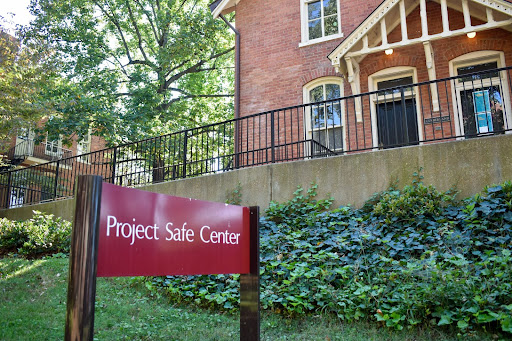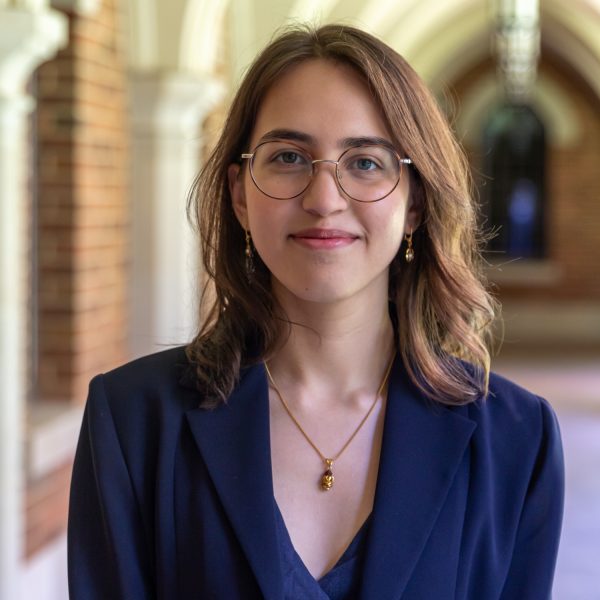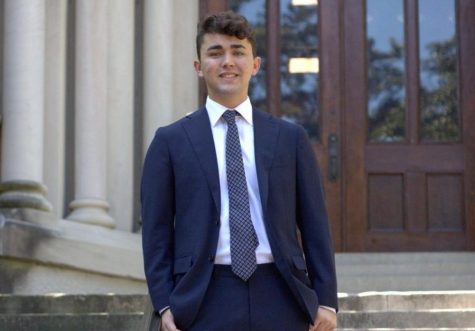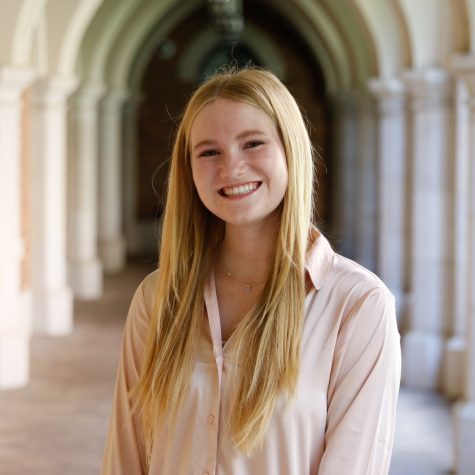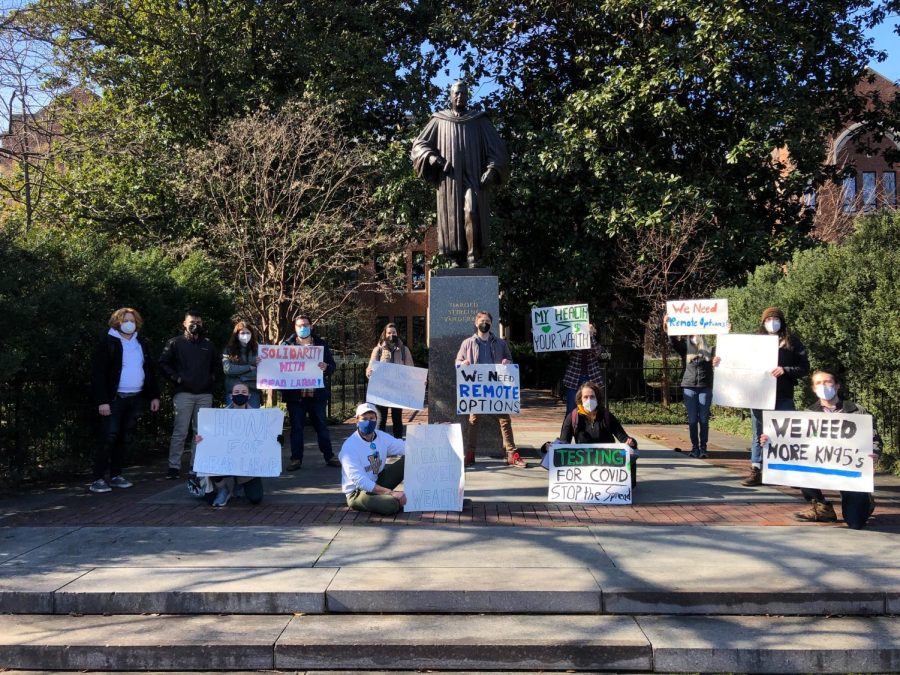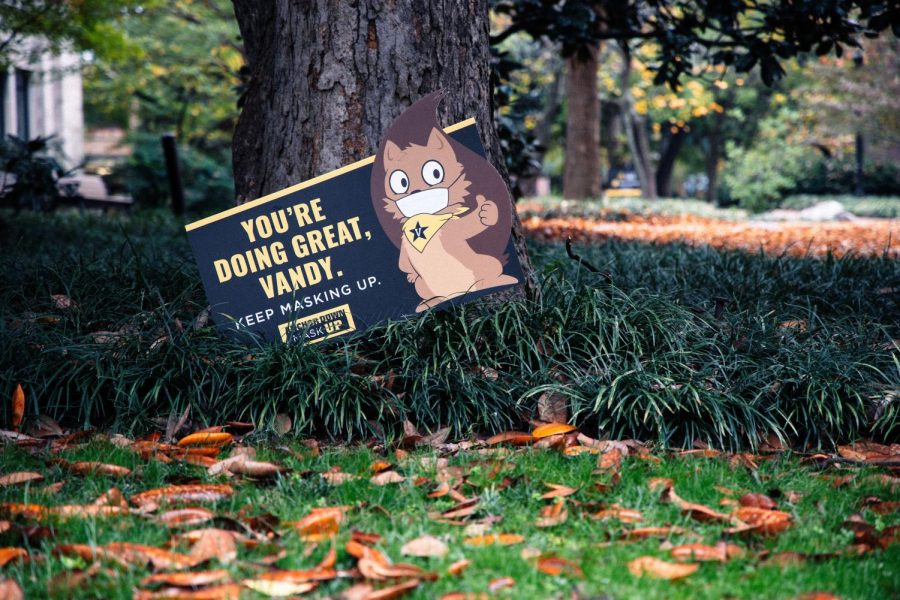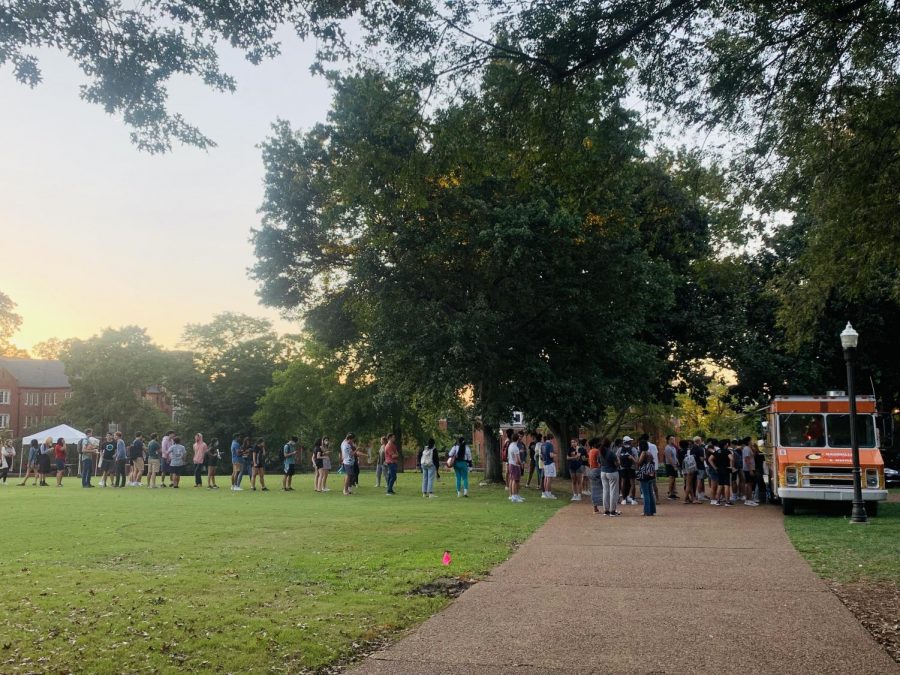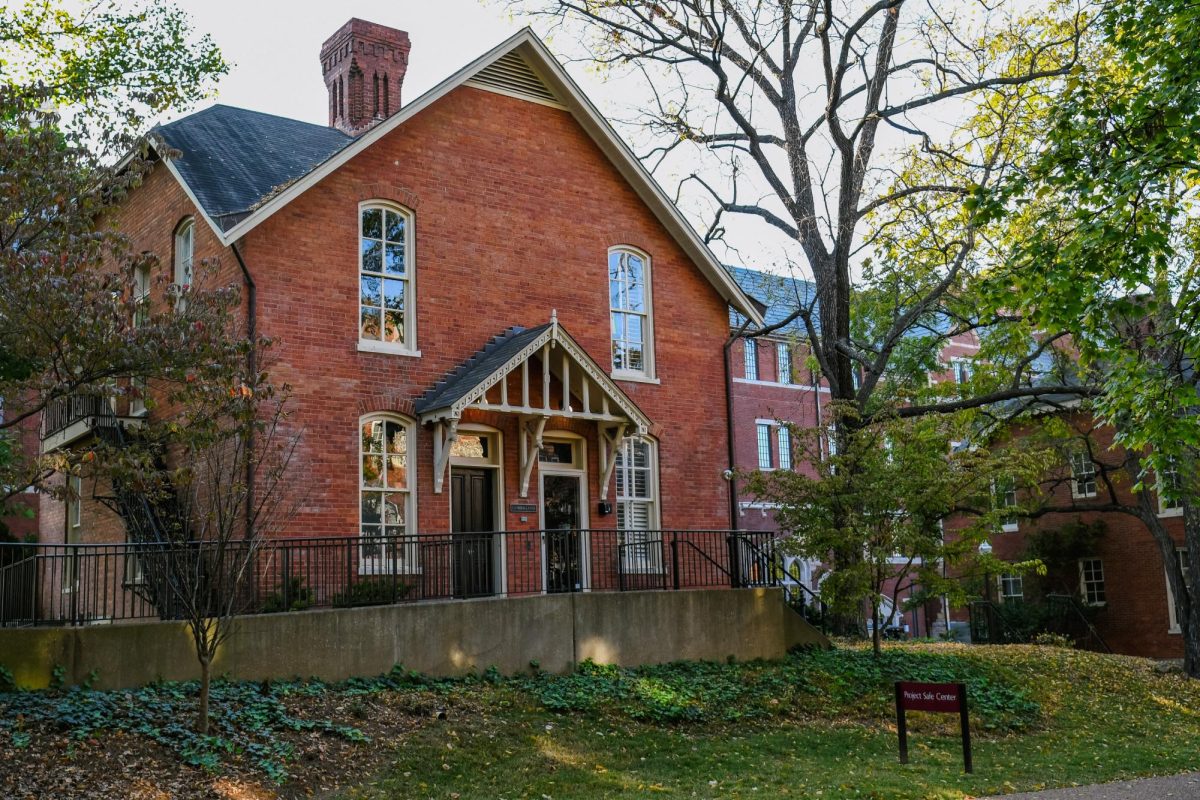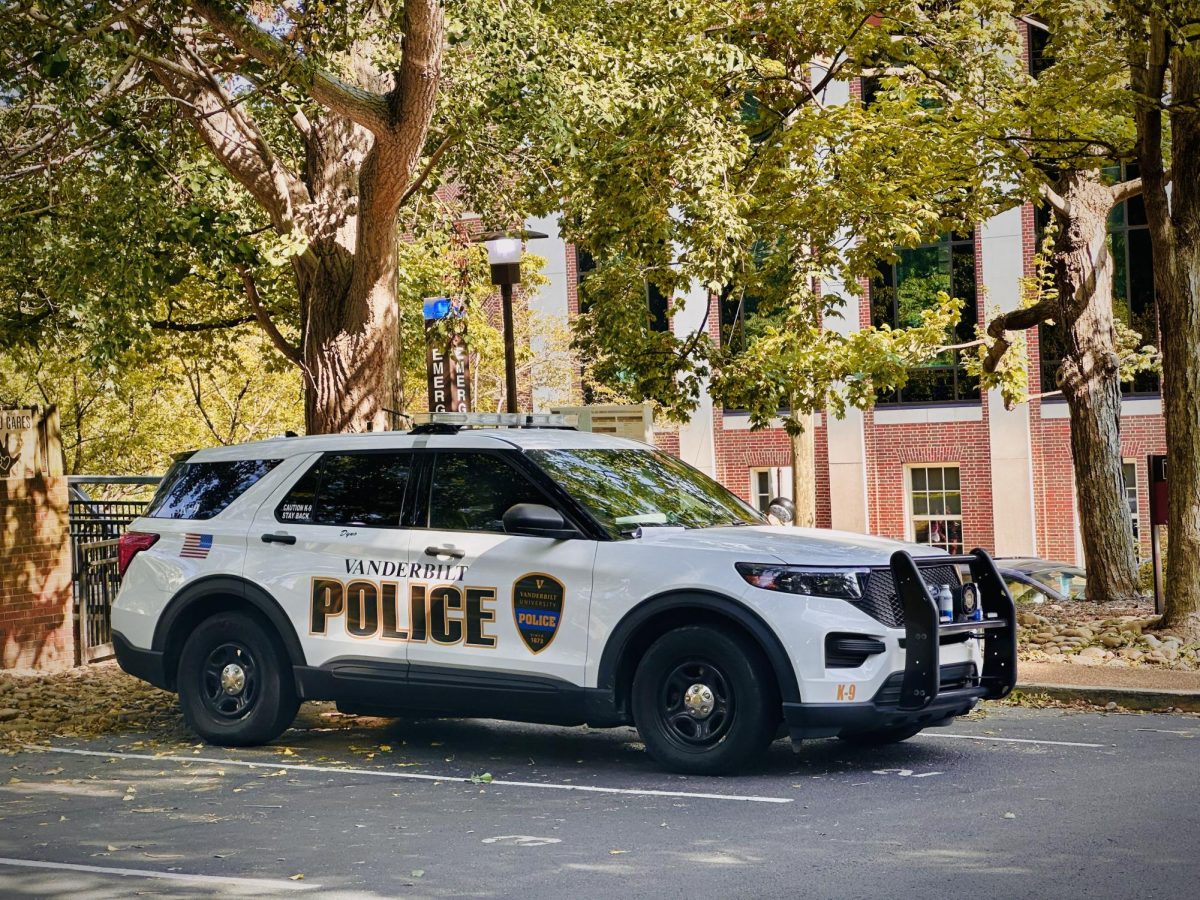Editor’s note: This piece contains mentions of sexual violence.
From Nov. 1-7, VSG’s Sexual Assault Awareness and Prevention Committee (VSAP) held “It’s On Us”— a week of programming to educate students about and raise awareness for sexual assault prevention on Vanderbilt’s campus.
The week of action took place as part of VSAP’s annual programming. It also follows a series of sexual assault email notices sent to students during the Fall 2021 semester. The number of sexual assault email notifications sent in the first month of the 2021-22 academic year is double that of the entire 2020-21 academic year. An additional security notice was sent via email to students on Nov. 11, alerting them to a reported on-campus sexual assault that occurred on Nov. 5.
The events of the It’s On Us week were inspired by the larger goal of the national It’s On Us campaign, which works toward combatting sexual violence on college campuses.
“The mission of It’s On Us is to build a movement to combat campus sexual assault by engaging all students—including young men—and activating the largest student-organized program of its kind through grassroots awareness and prevention education programs,” junior VSAP Committee Chair Olivia Core said. “[The mission is] to make sure that we’re raising awareness for this issue on college campuses, specifically, and then working collectively to call out problematic behavior.”
The VSAP committee collaborated with Project Safe to provide the ASSERT self-defense training on Nov. 2 to kick off the programming week. ASSERT is a local, woman-owned self-defense training program that partners with Project Safe to teach trauma-informed, inclusive, non-victim-blaming, assertiveness-building, boundary-setting and deescalation self-defense techniques. After soliciting feedback from the student body over the past year, Core stated she found that students were particularly interested in self-defense resources. She also explained that there will be more in the future.
“People were really concerned about having some sort of self-defense class,” Core said. “I think it went really well; we really liked the people that Project Safe was able to bring in.”
The second event in the programming for VSAP’s week of action was a panel discussion on intersectionality and sexual violence, held on Nov. 4. The panel was organized with Professor Claudine Taaffe, senior lecturer in the Department of African American and Diaspora Studies, and Professor K. Allison Hammer, senior lecturer in the Department of Gender and Sexuality Studies. They discussed their research and how individuals of marginalized racial and sexual orientation backgrounds are disproportionally affected by sexual violence.
“We’ve been really interested in making sure that all populations on campus are reached out to and feel like they have a place that they can go,” Core said. “That was part of the reason why we wanted to specifically do a panel on intersectionality.”
First-year Hannah Gozi, who attended the intersectionality panel, explained why the event was significant for her.
“Having friends of a lot of different backgrounds, I felt it was important for me to know about their experiences and how to spread awareness of the raised rates,” Gozi said.
A “Lunch and Learn” table was set up outside of Rand Dining Center from Nov. 1-5 and asked students to sign the national It’s On Us pledge. The pledge includes four commitments about recognizing sexual assault, intervening when and combatting non-consensual behavior.
Despite the efforts of It’s On Us week and the positive feedback from students and faculty, Core said she believes that there is more work to be done to curb on-campus sexual assault cases.
“I’m hoping that next year we can do more and have a bigger impact,” Core said.
Looking ahead, VSAP is planning an initiative for “angel shots” to be used at bars on Broadway St. so that people can use a code word to get a ride home or receive alternative forms of intervention if they feel unsafe. The VSAP committee is currently working to meet with bars and venues in downtown Nashville to garner support for this initiative. Per Core, the committee hopes to install flyers that will advertise “angel shots” as a discreet way to request support from a bar’s management if someone is in an unsafe situation.
“We want to make sure that people are being safe and having as many resources as possible to take care of themselves,” Core said. “We want to protect Vanderbilt students while they’re off campus as well.”
Among the concerns that Core and the VSAP committee heard from students, Core stated that email notifications of campus sexual assault occurrences were a common topic of discussion.
“It feels like every weekend we get another email. Every time I get one, I wish that there was more that I personally could do,” Core said. “I’m glad that, at the very minimum, we are making sure to send out these emails and make sure that people know that we still do have these issues on campus instead of trying to cover it up and act like it doesn’t happen here.”
In addition to the programming held by VSAP, other students have also taken action to express their concerns about reported community sexual assaults. Juniors Avery Fortier and Emma Kerr created a petition on Nov. 1 to promote action against on-campus sexual violence. They cited their frustration about the amount of sexual assault report notices that the Vanderbilt community has received in the Fall 2021 semester as their motivation behind making the petition. As of print, the petition has 1,630 signatures.
“Both Emma and I feel very strongly that the emails that Vanderbilt has been sending out are really inadequate, insensitive and not the best way to handle this sort of situation,” Fortier said. “The petition was a way for us to try to show Vandy that they need to care—because their student body cares—and to hopefully get them to change how they approach these emails and sexual assaults on campus as a whole.”
Per Fortier, VSG’s week of action is an important step to begin the discussion around on-campus sexual violence. They also suggested ways in which it can lead to further action by the larger student body.
“The VSG week, we think, is great for raising awareness, and it’s great that they’re trying to get these initiatives out there by having a subcommittee for it,” Fortier said. “But, it should be more than a week a year, and it should be more than just people in VSG leading—it should be campus wide.”
Kerr and Fortier expressed the importance of students having easier access to resources, like the UCC and the Project Safe Center. They also stressed that consequences for inappropriate behavior and sexual violence should be publicized by student organizations as soon as possible to deter students from engaging in it.
“We definitely would like to just use the petition as a starting point to show evidence to Vandy that this is an important issue and that they should care about it so that they’ll be more willing to change their systems,” Fortier said.
The pair said that the social culture at Vanderbilt surrounding sexual assault and the university’s response to it need to change.
“All of the weight of like solving the issue of sexual assault shouldn’t have to fall on the students,” Kerr said. “There’s only so much change that we can make on our own without having the power and the influence that Vanderbilt administration has.”

